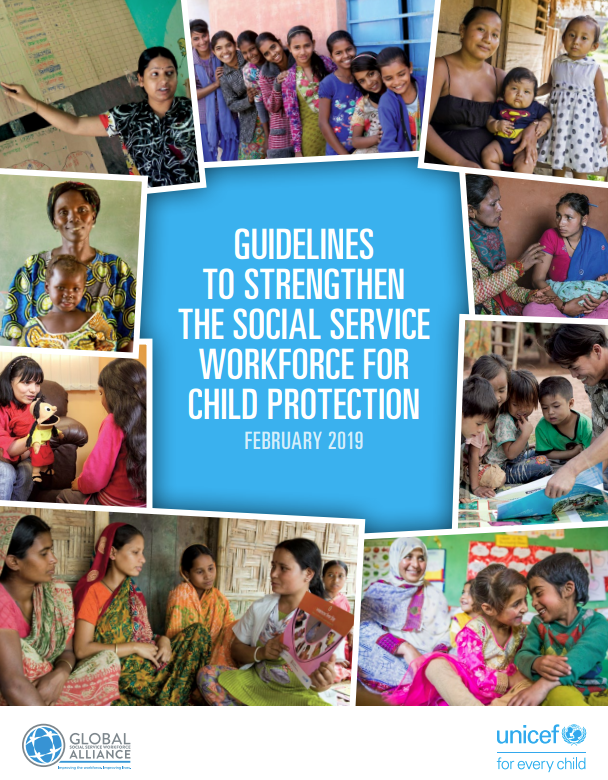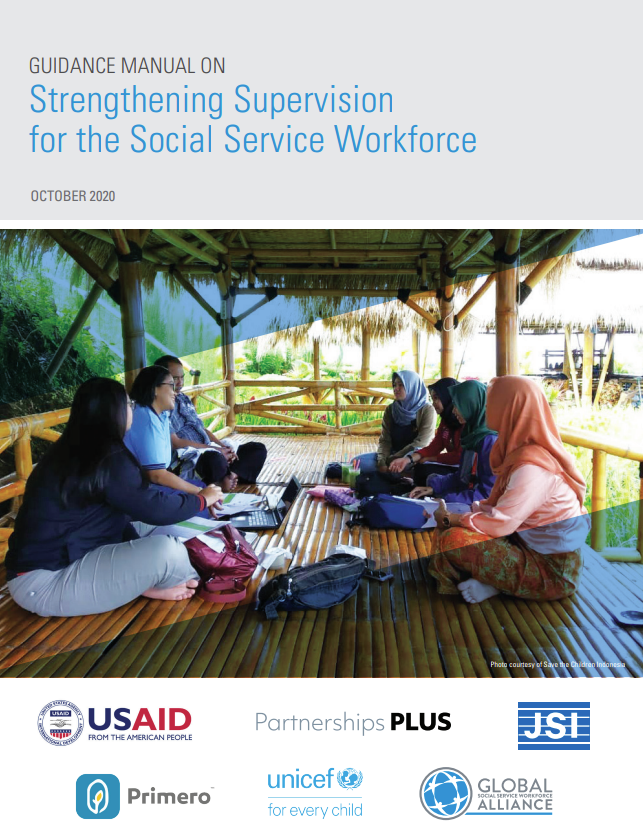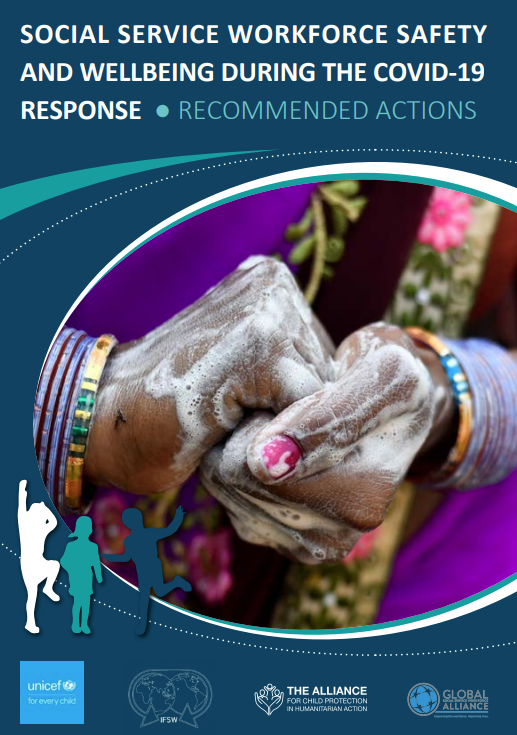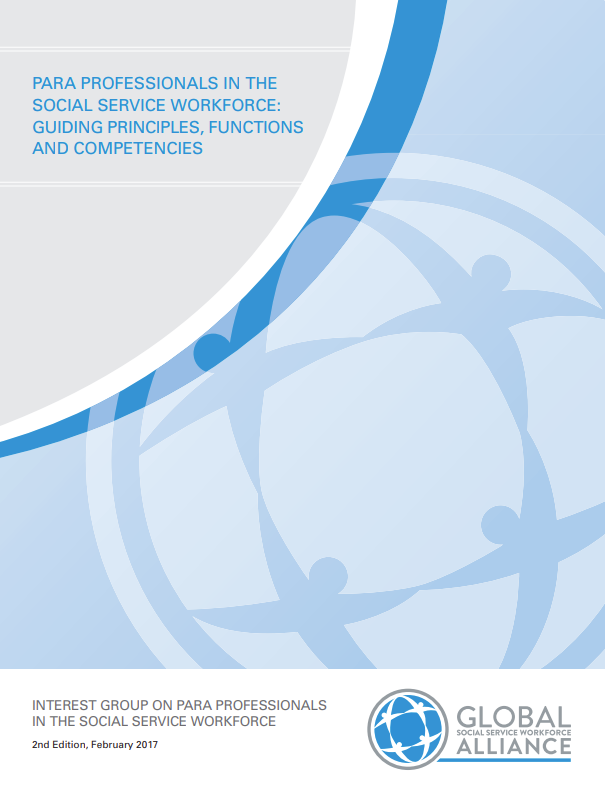Supporting the Social Service Workforce
Home » Social Service Workforce » Strengthening the Workforce » Supporting

Develop or strengthen systems to improve and sustain social service workforce performance
- Improve mechanisms (including leadership development) for supervising and managing the social service workforce; seek out any special mechanisms that may be needed for community-based caregivers.
- Create guidelines for formal induction of staff, including formal orientation programs, and peer mentorship from seasoned staff
- Improve systems for measuring social service workforce effectiveness (e.g., performance evaluations, measuring deliverables based on clear and realistic job descriptions with clear expectations and timeframe, performance feedback, etc.).
- Solicit input from families, community members and clients on service delivery and quality.
- Provide incentives for high performing social workers and develop and implement performance improvement plans for poor performing workers.
- Develop standard operating procedures for more coordinated and comprehensive services between national and district governments for children and families (e.g. better tracking and documentation of services, referrals, and ongoing support for children and families).
Develop tools, resources, and initiatives to improve job satisfaction and retention
- Solicit and implement ideas from social service workers for improving the workplace conditions aimed at enabling them to carry out their responsibilities more effectively.
- Provide the social service workforce with the tools and resources that they require to carry out their jobs to the best of their ability, particularly in under resourced rural settings (e.g. vehicles and fuel, offices, computer, printer, copier, phones or phone cards, etc.).
- Consult with social service workers and community based care givers to identify ways to acknowledge achievements or incentives and (merit-based) promotions to provide for individuals who stay with organizations for longer periods of time.
- Solicit data from community based care givers about what would motivate them, and implement interventions to the extent possible (e.g. explore possibility of providing stipends to community based care givers for travel and other applicable expenses).
- Develop viable career ladders for workers and mobilize support for these among employers, funders and other appropriate stakeholders.
- Ensure adherence to International and national labor policies, legislation & regulations for conditions of employment and workplace standards (e.g. salaries, case loads, working conditions, gender discrimination, medical benefits/Insurance plans, etc.).
- Engage in on-going monitoring to measure progress of job satisfaction and retention interventions and make appropriate changes based on evidence.
Support professional associations in their efforts to enhance the professional growth and development of the social service workforce
- Strengthen professional social work associations where they exist and support the establishment of new ones.
- Encourage networking and mutual support among social service workforce professionals (e.g., communities of practice list serves, electronic job postings, job fairs, social media).
- Support ongoing development and updating of association-based professional standards and codes of ethics for the social service workforce.
- Advocate for and encourage adherence to professional standards and ethics for the social welfare workforce
- Issue position and policy statements in addition to lobbying decision makers on behalf and in support of the social service workforce.
Alliance Resources Related to Supporting the Social Service Workforce

Guidelines to Strengthen the Social Service Workforce For Child Protection
These Guidelines, developed in consultation with UNICEF, are designed to accelerate programming on social service workforce strengthening for child protection. Focusing on three key aspects of social service workforce strengthening—planning, developing and supporting—the guidelines highlight a series of interventions that focus on enhancing the capacity of the workforce to deliver promotive, preventative, and responsive interventions that support families and children in communities.
Guidance Manual on Strengthening Supervision for the Social Service Workforce
Effective supervision results in improved quality of service to clients and reduced worker stress and burnout. The manual offers guidance on supervision to individuals working to provide, manage or coordinate social services. It defines what is meant by supervision in social services, outlines the key elements of good practice in supervision and summarizes the different forms of supervision.
Social Service Workforce Safety and Wellbeing during the COVID-19 Response: Recommended Actions
A well-supported, empowered and protected social service workforce was essential to mitigating the damaging effects of the COVID-19 pandemic. This document provided guidance on how to support the social service workforce and empower them to safely serve children, families and communities during the COVID-19 pandemic.
Para Professionals in the Social Service Workforce: Guiding Principles, Functions and Competencies
While community level workers, often para professionals, provide an array of social services in various countries across the globe, the functions and activities of these workers are not well described or delineated within or across countries. This document provides guidance for developing programs and activities related to how para professionals can be trained, developed, deployed and supported.





